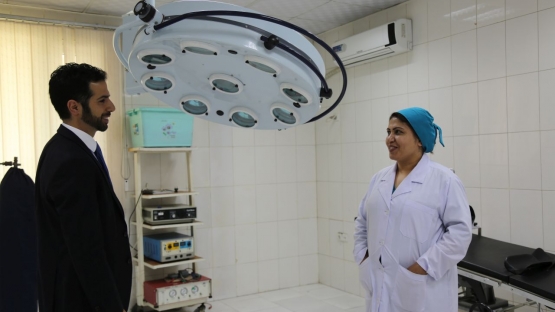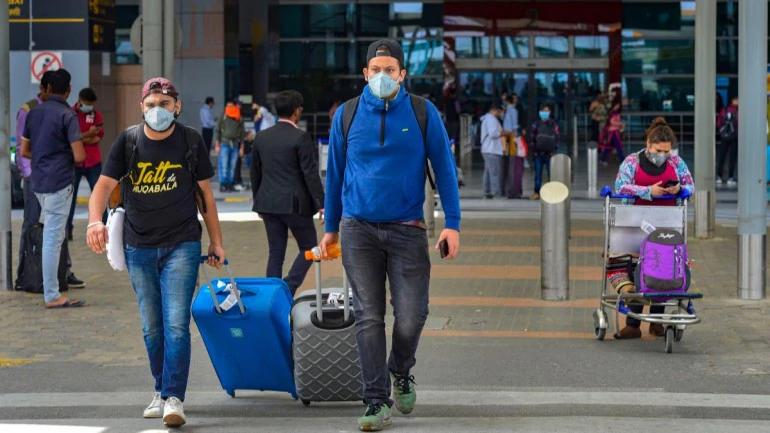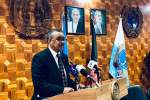The International Atomic Energy Agency (IAEA) has carried out the first ever review of Afghanistan’s cancer care needs to help the country prepare for a growing incidence of the disease among its people. The mission identified gaps in cancer diagnosis and treatment services, and recommended actions for the Government to strengthen its health care workforce and set up the country’s first radiotherapy center.
Publish dateTuesday 15 May 2018 - 14:49
Story Code : 163688
AVA- At the request of the Ministry of Health, the IAEA led a team of international experts, including representatives from the World Health Organization (WHO) and the International Agency for Research on Cancer (IARC), to review how patient access to cancer services could be improved. The assessment, known as an imPACT review, is often the first step countries take to understand shortcomings and needs within their national cancer control structure.
“An imPACT review provides a situation analysis and a set of recommendations to strengthen national cancer control capacities,” said Arsen Juric, Programme Officer in the IAEA’s Division for the Programme of Action for Cancer Therapy (PACT) and coordinator of last week’s mission. “This tool helps countries to prioritize cancer- related interventions and investments, and can also be used as a basis for funding proposals.”Amidst a complex security situation, Afghanistan faces significant challenges in the delivery of health care. National health funds are scarce, and the provision of essential services and medicines relies heavily on external aid.
The review found that while diagnostic services for cancer are available in public and private health systems, activities are fragmented and not well coordinated. Diagnostic and treatment equipment is also insufficient to cover the country’s needs, and there is a significant lack of qualified medical personnel – such as pathologists, radiologists, radiation oncologists, medical physicists and technicians – to provide adequate cancer care.
The experts recommended that the country identify priority areas to guide investments in cancer control, to expand the development of the health workforce and to start planning for the establishment of a radiotherapy facility within a comprehensive cancer care centre.
The IAEA, through its technical cooperation programme, is providing technical and financial support to Afghanistan in areas related to radiation protection of workers and patients as a first step in the establishment of such radiotherapy services.
“Considering the transition of the disease burden in Afghanistan, it is important to pragmatically include cost-effective interventions for non-communicable diseases, including cancer, in national health care delivery packages,” said WHO representative for Afghanistan Richard Peeperkorn.
With a predominantly rural and dispersed population of over 34 million and a life expectancy of just over 60 years, Afghanistan, like many low-income countries, struggles to cope with the rise of chronic diseases. According to IARC, there were an estimated 20 000 cancer cases in Afghanistan in 2012. By 2030, this figure is expected to rise to almost 33000.
Women are particularly affected, as breast and cervical cancer account for half of all female cancer cases, killing over 2000 a year. These types of cancers, if diagnosed early, can be treated effectively with radiotherapy.
“It is a dire need for the people of Afghanistan, especially women and children, to have access to treatment and care for cancer,” said the First Lady of Afghanistan Rula Ghani, who also met with the imPACT review team. “Currently cancer is a death sentence for a person, which should not be the case, as the most prevalent cancers in the country – such as breast and childhood cancers – are amenable to proper treatment and care.”
The team visited public and private health care facilities, medical schools and other institutions involved in the provision of cancer services in the capital Kabul. The experts discussed with local counterparts the delivery of services in cancer prevention, early diagnosis, treatment and palliative care, as well as radiation safety.
“Non-communicable diseases are an emerging health problem in Afghanistan for which we are not yet prepared to provide an adequate response,” said Minister of Public Health Ferozudin Feroz at the mission’s closing meeting. “The findings are an eye-opener, and we are committed to implementing the suggested interventions according to the available resources.”
This was the 91st imPACT review conducted by the IAEA since 2005.
Source : خبرگزاری Afghan Voice Agency(AVA)
avapress.net/vdcbwfb8wrhb00p.4eur.html
Top hits












